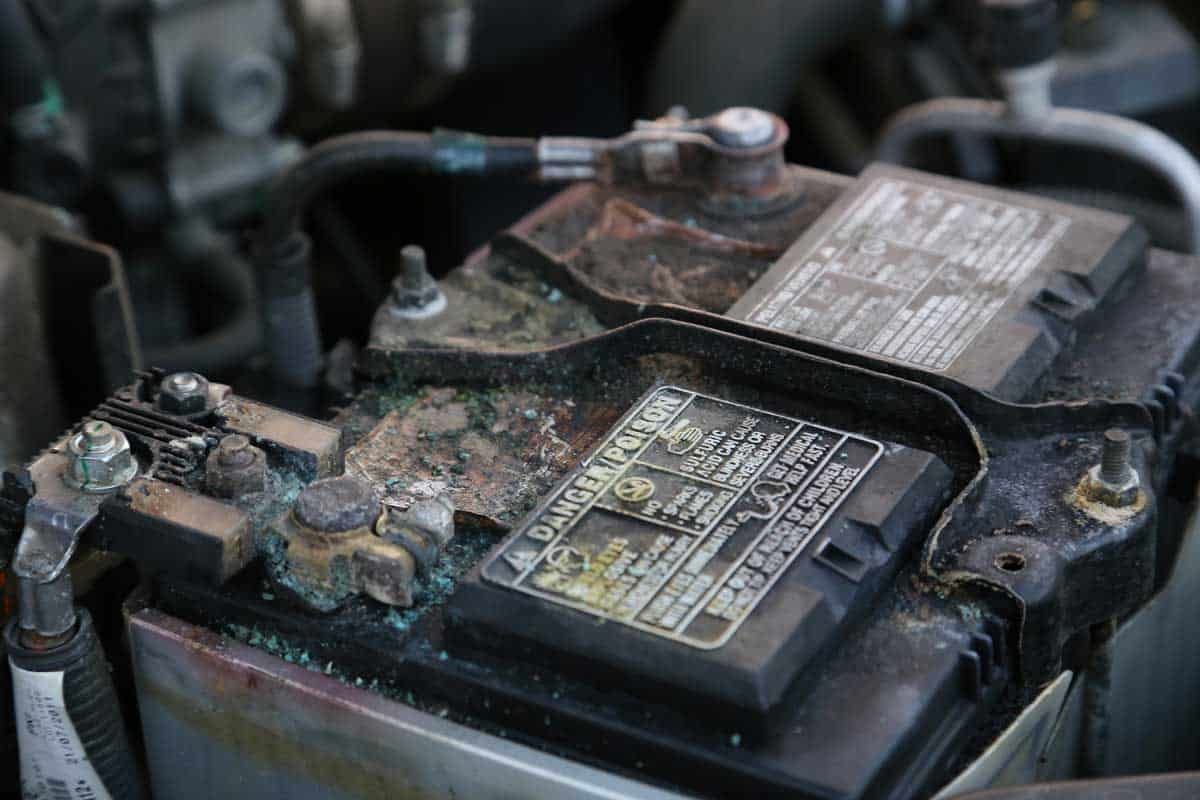If your car battery is leaking from the top, common causes include overfilling or cracks. Fixing it involves ensuring proper electrolyte levels and possibly replacing the damaged battery.
A leaking car battery can be a concerning issue that may lead to corrosion, electrical problems, or even safety hazards. Identifying the root cause of the leak and promptly addressing it is crucial to maintaining the optimal performance of your vehicle.
In this guide, we will explore the possible reasons why your car battery is leaking from the top, as well as the necessary steps to remedy the situation effectively. By following these insights, you can ensure the longevity and reliability of your car’s electrical system.
Common Causes Of Car Battery Leaking From The Top
Car battery leaks can be a source of frustration for drivers, leading to potential damage and inconvenience. Understanding the common causes behind car battery leaking from the top can help you diagnose the issue and take appropriate measures to fix it. Let’s explore these causes in more detail:
Overfilling The Battery
Overfilling the car battery is one of the common causes of leakage from the top. It happens when the battery is filled beyond the recommended level, exceeding the maximum electrolyte capacity. Excess fluid can seep through the vents and cause leakage. Be cautious when adding water or electrolyte solution and strictly follow the manufacturer’s guidelines.
Damaged Or Faulty Battery Case
A damaged or faulty battery case is another leading cause of leakage from the top. Over time, battery cases can develop cracks or holes due to physical damage, corrosion, or aging. These imperfections allow electrolyte to leak out through the top. Regular inspections and maintenance of the battery case can prevent this issue. If you notice any cracks or damage, it is essential to replace the battery promptly.
Extreme Temperatures
Extreme temperatures, both hot and cold, can contribute to car battery leakage from the top. In hot weather, excessive heat can cause the battery fluid to expand, resulting in overflow and leakage. Similarly, extreme cold can affect the battery’s ability to hold a charge, leading to overcharging and leakage when the battery is recharged. To minimize the risk, park your vehicle in shaded areas during hot weather and consider using a battery insulation kit during the winter months.
By understanding these common causes, you can take proactive steps to prevent or resolve car battery leaks from the top. Regularly inspect your battery for damage or signs of overfilling, and ensure proper maintenance according to the manufacturer’s recommendations. Taking care of your car battery will prolong its lifespan and keep your vehicle running smoothly.

Credit: www.autotechiq.com
Fixing A Leaking Car Battery
Fixing a Leaking Car Battery requires proper safety precautions, thorough cleaning, and potential replacement or sealing of the damaged battery. It’s important to address a leaking car battery promptly to prevent any damage to the surrounding components and ensure safe operation of the vehicle.
Safety Precautions
When dealing with a leaking car battery, safety precautions should be the top priority. Follow these steps to protect yourself and others:
- Wear protective gloves and safety goggles.
- Ensure the area is well-ventilated.
- Keep open flames and sparks away.
- Avoid contact with the skin or eyes.
Cleaning The Battery
To clean the leaking car battery, follow these steps:
- Disconnect the battery cables, starting with the negative terminal.
- Mix baking soda and water to create a cleaning solution.
- Gently scrub the battery and terminals with a brush soaked in the solution.
- Rinse with water and dry thoroughly.
Replacing A Damaged Battery
If the battery is damaged beyond repair, it may need to be replaced. Follow these steps to safely replace the battery:
- Remove the old battery and dispose of it correctly.
- Select a new battery that matches the specifications of your vehicle.
- Place the new battery in the car and secure it properly.
- Connect the battery cables, starting with the positive terminal.
Applying A Battery Sealant
If the battery casing is not severely damaged, applying a battery sealant can help prevent further leaks. Follow these steps:
- Ensure the battery is clean and dry.
- Apply the battery sealant according to the manufacturer’s instructions.
- Allow the sealant to dry completely before reconnecting the battery.
Prevention And Maintenance Tips
Proper Battery Maintenance is crucial to prevent leaks.
Checking Water Levels Regularly
Inspect water levels in the battery regularly.
Protecting The Battery From Extreme Temperatures
Keep the battery in moderate temperature conditions.

Credit: www.cars24.com

Credit: www.racshop.co.uk
Conclusion
A leaking car battery can be caused by various factors such as overcharging, damaged casing, or even excessive heat. It is essential to promptly address any leaks to prevent damage to your vehicle and ensure safety. Regular maintenance and timely replacements can help prevent such issues, ensuring a smoothly running vehicle.


